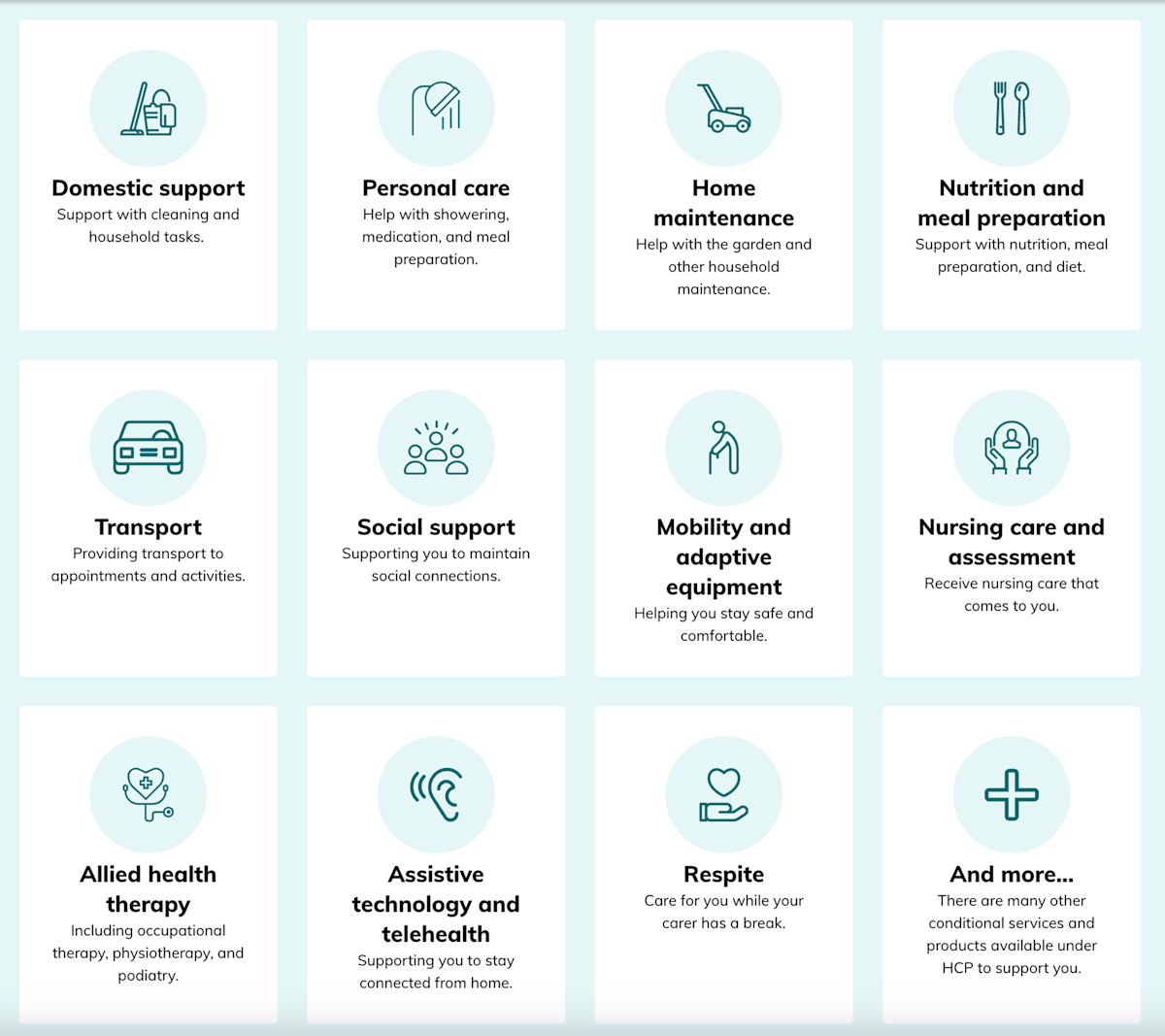The Significance of Home Care in Special Needs Assistance: Exploring NDIS Registered Solutions
Home care is an essential aspect of special needs support, particularly within the structure of NDIS registered services. It provides vital solutions that cultivate independence and improve general high quality of life for people with specials needs. By supplying tailored assistance, these services satisfy unique needs and preferences. However, the effectiveness of home care depends on ongoing communication with NDIS planners. This dynamic relationship reveals deeper understandings right into the transformative capacity of tailored support. What successes and challenges arise in this advancing landscape?
Recognizing the Duty of Home Treatment in Disability Support
Home treatment plays a vital role in the support of individuals with specials needs, giving considerable solutions that advertise independence and improve quality of life. It incorporates a range of support tailored to satisfy the distinct needs of each person, including personal treatment, family tasks, and mobility support. Educated caregivers supply friendship and emotional assistance, promoting meaningful links that fight social isolation.Furthermore, home treatment services are made to adapt as situations transform, making sure that individuals obtain the proper level of care throughout their lives. This versatility enables the assimilation of new treatments or innovations that may develop. By prioritizing the person's regimens and choices, home treatment empowers them to preserve control over their day-to-day tasks. Inevitably, the role of home care in disability assistance is vital, as it not only supplies sensible assistance however also verifies the self-respect and autonomy of those it offers.

Benefits of Personalized Support in your home
Individualized support in your home offers many benefits customized to private requirements - support at home. By developing personalized assistance strategies, caretakers can substantially boost the independence of individuals with disabilities. This approach not only advertises freedom however likewise fosters a sense of dignity and self-respect
Tailored Support Plans
Tailored assistance plans play an important role in improving the top quality of life for people with handicaps. These tailored strategies are made to attend to the special demands and preferences of each person, making certain that assistance services align with their details objectives and way of life. By involving customers in the planning process, customized support strategies promote a sense of possession and empowerment. This customized technique allows caretakers to supply appropriate assistance, whether it entails daily living activities, social engagement, or ability advancement. Additionally, customized plans can adjust to altering scenarios, showing the developing needs of the person. Eventually, this tailored assistance enhances not only everyday operating yet likewise psychological wellness, reinforcing the relevance of a personalized strategy in special needs support solutions.
Enhanced Freedom Opportunities
Individuals with disabilities profit considerably from personalized help in the house, as it advertises improved freedom opportunities. Tailored assistance permits individuals to participate in everyday tasks with higher self-confidence and autonomy. Home treatment services can include aid with personal treatment, dish preparation, and family management, enabling clients to keep their regimens and choices. This tailored method fosters a sense of control, encouraging individuals to make options that reflect their special demands and goals. Additionally, the convenience of home creates an acquainted setting, decreasing anxiousness and improving psychological well-being. On the whole, tailored assistance not just sustains crucial everyday tasks but likewise cultivates a more independent way of living, allowing individuals with specials needs to thrive within their areas and achieve higher personal fulfillment.
Review of NDIS Registered Home Treatment Solutions
NDIS signed up home care services encompass various kinds of assistance customized to people with specials needs (support at home provider). Comprehending eligibility and access to these solutions is essential for taking full advantage of the benefits of NDIS support. This review will certainly highlight the crucial aspects of home treatment under the NDIS structure
Kinds Of Home Care
Home treatment services play an important role in sustaining people with impairments, offering an array of choices to meet varied demands. NDIS registered home care solutions consist of personal treatment, which helps individuals with daily tasks like showering and dressing. Residential support helps preserve a secure and clean living environment, while reprieve care gives momentary relief for key caregivers. Neighborhood access solutions allow engagement in social and leisure activities, cultivating self-reliance and link. Additionally, nursing treatment supplies medical assistance at home, making certain health and wellness demands are met. Treatment solutions, including job-related and physiotherapy, help in rehabilitation and skill growth. Together, these different sorts of home care contribute greatly to improving the lifestyle for people with impairments.
Qualification and Accessibility
How can one access the necessary home care services supplied under the NDIS? To receive these services, individuals need to fulfill particular qualification standards outlined by the National Special Needs Insurance Plan. Candidates should demonstrate a irreversible and significant handicap that influences their daily functioning. The process begins with submitting a Gain access to Demand Type, which consists of documents of the disability and its influence on day-to-day live. As soon as authorized, people obtain a customized plan detailing their required supports, consisting of home treatment solutions. These solutions can be accessed with NDIS-registered suppliers, Click This Link that need to abide by stringent high quality and security requirements. Comprehending these steps guarantees individuals can properly browse the NDIS system to acquire the needed support for their home care needs.
Advantages of NDIS Assistance
Accessing crucial assistance via signed up solutions uses people with specials needs a transformative possibility to enhance their high quality of life. NDIS signed up home treatment services give customized support, guaranteeing that each participant's unique demands are satisfied. These services incorporate a wide variety of assistances, consisting of personal treatment, wheelchair help, and therapeutic solutions, all designed to promote freedom and wellness. Additionally, registered carriers follow extensive quality requirements, guaranteeing a high level of treatment and security. Participants likewise gain from enhanced flexibility, permitting them to pick service distribution methods that finest fit their way of lives. Inevitably, NDIS support promotes a feeling of area and empowerment, enabling people with disabilities to engage more fully in their every day lives and achieve individual objectives.
Tailoring assistance to individual requirements is important in special needs care, as each person's preferences and scenarios differ substantially. The National Impairment Insurance Plan (NDIS) stresses the value of personalized treatment plans that mirror the one-of-a-kind objectives and requirements of each individual. This technique permits caretakers to concentrate on specific other areas such as movement support, daily living skills, and psychological support, guaranteeing that services are reliable and appropriate.
Enhancing High Quality of Life With Home Care
While numerous individuals with disabilities deal with special difficulties, home care services can greatly boost their lifestyle by providing customized assistance in acquainted surroundings. These services cultivate self-reliance, enabling individuals to participate in everyday activities that advertise self-confidence and personal fulfillment. Via personalized care strategies, home treatment service providers can address details requirements, whether it involves assistance with individual hygiene, meal prep work, or medicine management.Moreover, home care promotes social interactions, encouraging links with friends and family, which are crucial for psychological well-being. By continuing to be in their own homes, people experience a sense of security and continuity, lowering stress and anxiety connected with unknown environments. In enhancement, caretakers can use friendship, assisting to alleviate feelings of seclusion. In general, home treatment not only addresses physical requirements yet additionally enhances the social and emotional dimensions of life for people with impairments, inevitably leading to a much more meeting and pleasurable presence.
Browsing the NDIS for Home Care Solutions
Leading through the National Disability Insurance Coverage Scheme (NDIS) can significantly influence the effectiveness of home care services for people with disabilities. Understanding the NDIS structure is crucial for participants looking for ideal financing for home care services. This process begins with determining specific demands and goals, which aids in customizing assistance strategies that align with the individual's requirements.Navigating the NDIS includes acquainting oneself with the qualification criteria, application procedures, and the planning process. Individuals must engage with NDIS coordinators to review their certain circumstances and desired outcomes. This dialogue guarantees that the necessary home treatment services, such as personal care, help with day-to-day living, and healing assistance, are consisted of in their plans.Furthermore, remaining upgraded on NDIS policies and any adjustments in funding can equip individuals to make educated options regarding their home care options, inevitably boosting their freedom and lifestyle.
Success Stories: Encouraging Lives With Home Care
Home care solutions have actually transformed the lives of numerous individuals with impairments, demonstrating the extensive influence of individualized support. For example, Sarah, a girl with analytical palsy, obtained freedom with tailored home treatment aid that allowed her to handle everyday tasks and participate in neighborhood activities. John, that has autism, benefited from a committed caregiver who helped him establish social skills and foster significant partnerships, improving his top quality of life. These success stories highlight just how home care not just fulfills physical requirements yet also advertises psychological wellness. Family members report enhanced tranquility of mind, knowing their liked ones receive caring and professional assistance in an acquainted atmosphere. As these instances show, home treatment encourages people with impairments to flourish, urging self-sufficiency and boosting his response general life fulfillment. The transformative impacts of such services underscore the significance of home treatment in the wider context of special needs support.

Regularly Asked Questions
Exactly How Can I Locate NDIS Registered Home Care Providers in My Location?
To find NDIS signed up home care service providers in a details location, individuals can go to the NDIS web site, make use of the provider finder tool, or get in touch with regional special needs assistance organizations for suggestions and assistance.
What Certifications Should Home Care Workers Possess for Impairment Assistance?
Home care workers for impairment support should preferably have credentials such as a Certification III in Individual Support, relevant experience, solid interaction abilities, compassion, and knowledge of impairment legal rights and person-centered care practices.
Exist Any Type Of Expenses Related To NDIS Registered Home Treatment Providers?
Expenses related to NDIS registered home care services can differ based upon individual needs, company, and the degree of care called for. Participants ought to assess their strategies to comprehend particular funding and possible out-of-pocket costs.
Can Home Care Services Accommodate Specific Social or Language Requirements?

Exactly How Often Can I Change My Home Care Support Plan?
Individuals can usually transform their home care support plan as required, often at least each year or upon substantial life adjustments. Normal testimonials assure that the plan remains relevant and effectively addresses evolving individual situations and requirements. Trained caregivers offer friendship and emotional support, cultivating purposeful links that fight social isolation.Furthermore, home treatment services are designed to adjust as conditions alter, ensuring that individuals obtain the proper level of care throughout their lives. Home care solutions can consist of support with personal treatment, dish prep work, and family management, enabling customers to maintain their regimens and choices. NDIS registered home care services consist of individual care, which aids people with day-to-day activities like showering and clothing. Through personalized care plans, home treatment suppliers can attend to certain demands, whether it involves aid with individual hygiene, dish prep work, or medicine management.Moreover, home care promotes social interactions, urging connections with family and close friends, which are necessary for emotional well-being. Prices connected with NDIS signed up home care solutions can vary based on individual requirements, solution suppliers, and the degree of treatment required.
Comments on “How to assess whether your support at home provider meets NDIS standards”